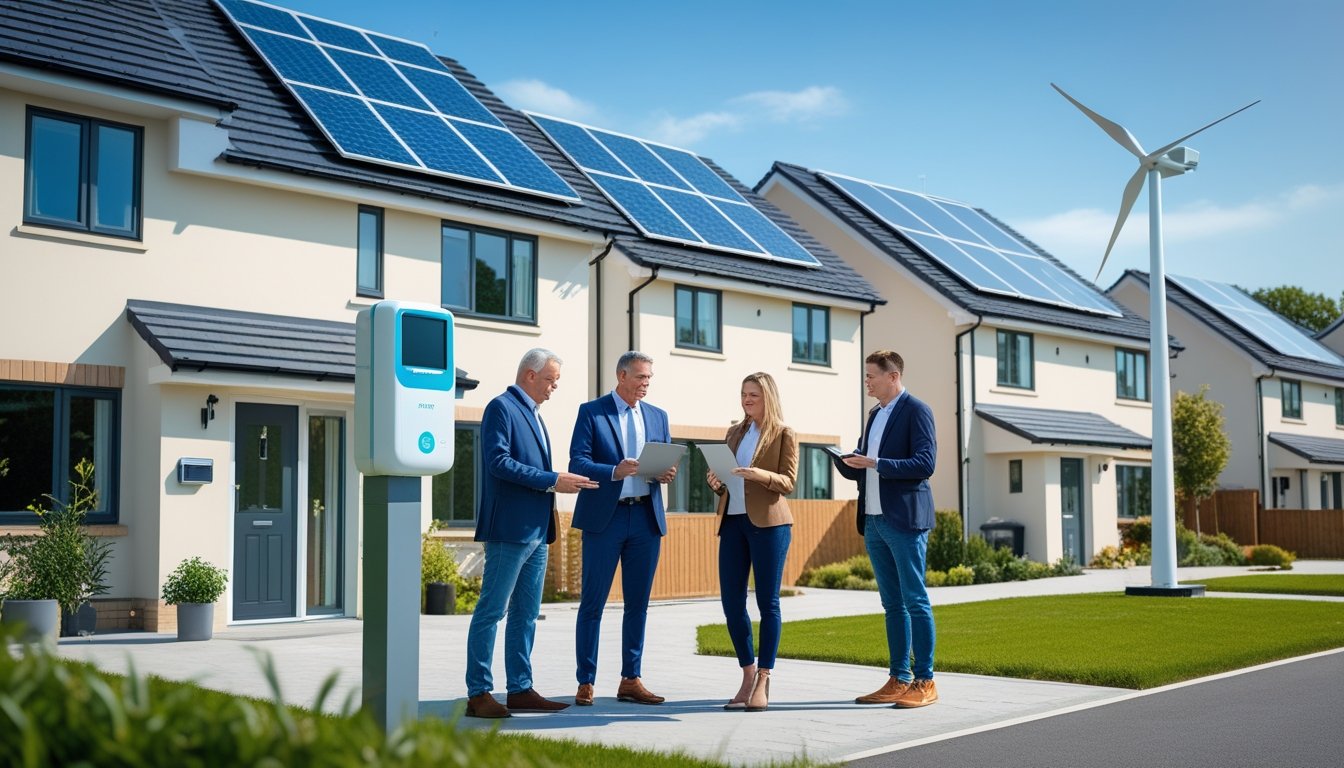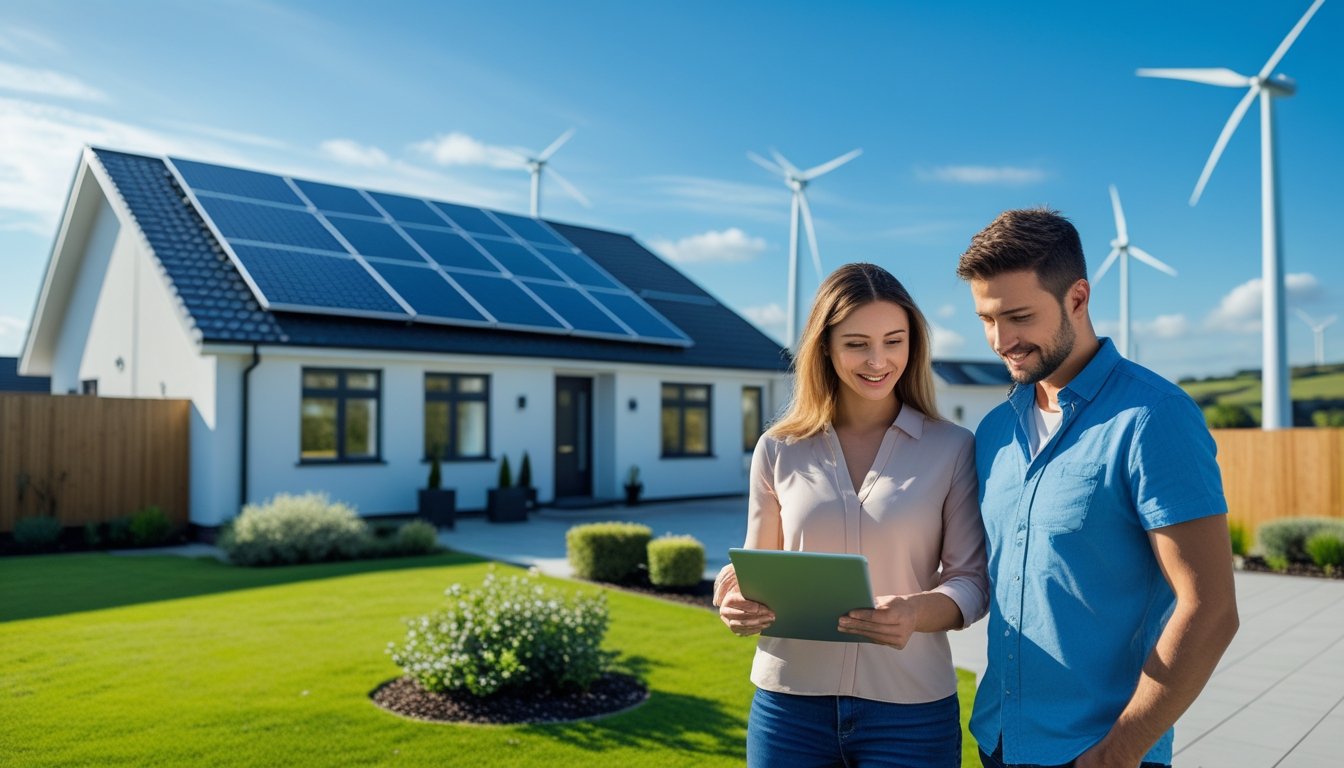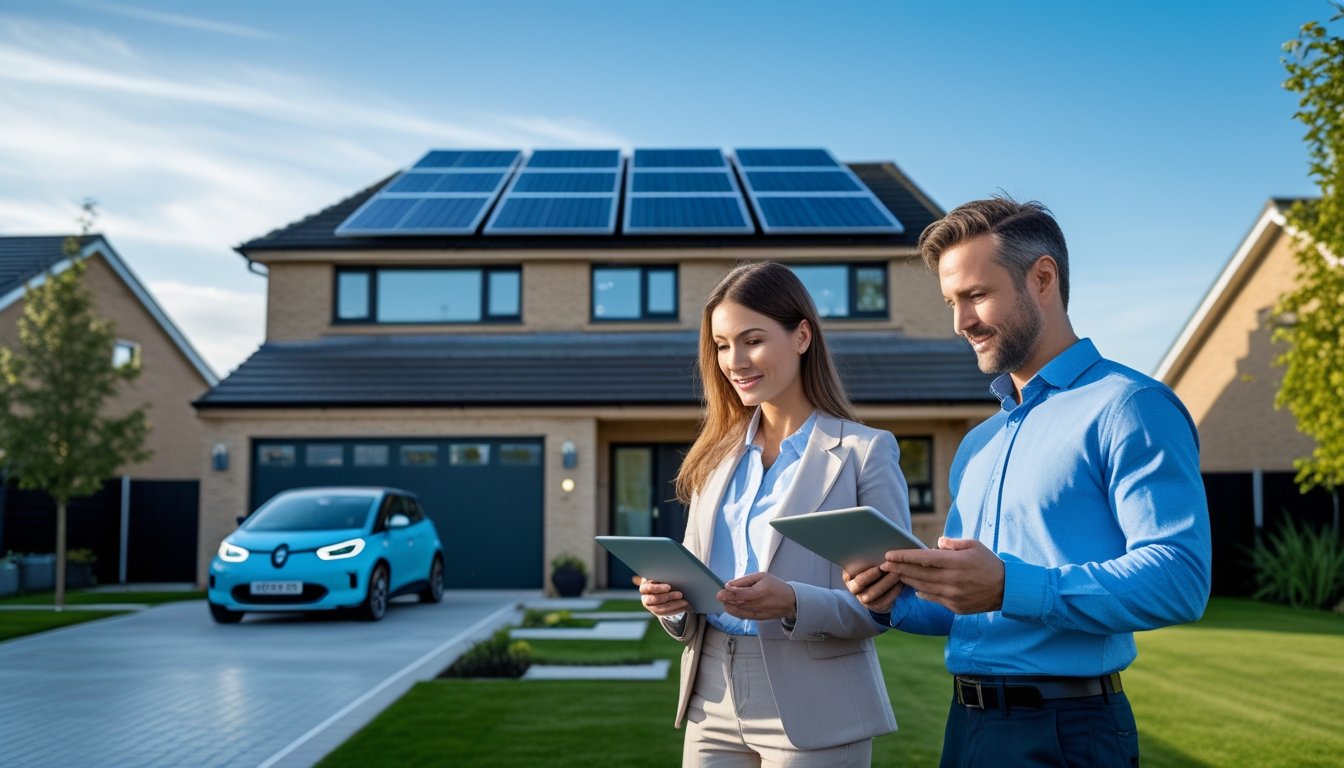Late updated: 24 Nov 2025 10:11
Written by: Eleanor Hartman
Renewable Energy Financing Options for UK Homeowners: A Comprehensive Guide
Navigating the realm of renewable energy financing can be daunting for UK homeowners. Understanding the breadth of financing options available allows us to make informed decisions that facilitate the adoption of sustainable energy solutions. With rising energy costs and increased environmental awareness, there's an urgent need to explore financial avenues that make going green more achievable.

Solar panels, wind turbines, and other renewable technologies present enticing ways to cut energy bills and reduce carbon footprints. In addition to financial savings, government grants and innovative green loans provide valuable support, enabling the shift to renewables. Addressing both immediate and long-term energy requirements, these options are designed to ease the financial burden of initial setup costs.
By examining the current landscape of financing solutions, from flexible payment plans to government-backed programmes, we can guide our community through the process of embracing renewable energy. As we evaluate each option, it helps us know which is best suited to individual needs, ensuring a smart and sustainable investment for our homes and our planet's future.
Key Takeaways
- Explore available financing to adopt renewable energy in the UK.
- Understand specific loans and grants aiding renewable investments.
- Benefits extend beyond cost savings to environmental impact.
Core Renewable Energy Financing Options for UK Homeowners
Navigating the renewable energy landscape in the UK involves exploring various financing options. From government-backed schemes to private financing solutions, homeowners can find ways to make eco-friendly upgrades more affordable. Our exploration here focuses on the mainstays in financial aid available, each tailored to meet different sustainable needs and circumstances.
Government Grants and Incentives
Government initiatives form the backbone of renewable energy financing options available to UK homeowners. Programmes like the Energy Company Obligation (ECO4) and the Boiler Upgrade Scheme offer financial support to make energy-saving home improvements. ECO4 specifically targets low-income households, supporting them in reducing energy consumption.
The Smart Export Guarantee (SEG) rewards users who generate excess solar energy, contributing it back to the grid and receiving payments in return. Additionally, the UK government has introduced 0% VAT on solar panel installations, making the overall cost reduction more impactful.
Green Loans and Renewable Energy Finance
Green finance solutions have become increasingly significant for homeowners looking to adopt renewable technologies. Green Loans, specifically designed for energy-efficient installations, offer flexible repayment terms. Financial institutions understand the importance of sustainability and thus offer attractive interest rates for these loans.
Providers like Good Energy present solar panel finance options, simplifying the process of funding these installations through manageable monthly payments. Consulting a financial advisor can help outline the ideal financing plan tailored to individual energy needs and budget constraints.
Installer and Specialist Financing Schemes
Some of the most practical financial support for home renewable projects comes directly from installers and specialist lenders. These organisations offer tailored finance packages, sometimes involving partnerships with lenders to facilitate accessible solar panel loans and other equipment financing.
For example, Lendology grants loans for various renewable energy installations, supporting homeowners in bridging the gap between grant funding and the total project costs. It's crucial to examine the terms, including interest rates and the application process, to find an optimal fit for the household budget.
Summary of Main Financing Options
In reviewing the core funding pathways for renewable energy adoption in UK homes, several options stand out. Government grants and schemes like ECO4, solar incentives through SEG, and the VAT exemption significantly reduce costs. On the other hand, green loans provide a financial framework allowing phased payments, easing initial investment burdens. Collaboration with installers further expands financing choices, helping us achieve greater energy efficiency without financial strain.
Harnessing these financial aids not only supports our transition to greener energy but also cultivates a future of sustained environmental and economic benefits. Each financial pathway offers unique attributes, and a detailed review of terms and eligibility will ensure our investment aligns with both environmental goals and personal financial health.
Choosing and Benefiting from Renewable Energy Investments

Investing in renewable energy systems offers numerous benefits to homeowners, from reducing energy bills to increasing property value. Embracing technologies like solar panels or heat pumps can positively impact both finances and the environment.
Evaluating the Financial Impact and Payback Period
When considering renewable energy investments, assessing the financial impact and payback period is essential. The initial cost of installation can be significant, particularly for systems like solar PV or ground source heat pumps. However, these costs are often offset by long-term savings on energy bills. We need to consider the energy prices in our area and the potential government incentives available. For instance, feed-in tariffs or grants can help shorten the payback period. Typically, a well-installed 4kW solar panel system might take anywhere between 5 to 15 years to recoup its cost depending on location and energy prices. Regular maintenance also plays a role in ensuring the system's longevity and efficiency. Evaluating these factors helps us make informed decisions about which system best suits our financial situation and energy needs.
Popular Renewable Energy Systems for Homes
Various renewable energy systems can be integrated into homes to enhance energy efficiency. Solar panels remain a popular choice due to their adaptability and the steady decrease in installation costs. Wind turbines, while less common for individual homes due to space requirements, offer another viable source of renewable energy. For heating needs, air and ground source heat pumps are gaining traction, especially in rural areas. Biomass boilers provide an alternative for those with ample space for fuel storage. When selecting a system, it’s crucial to consider the property's location, size, and specific energy requirements. Each system has its own set of advantages, and choosing the right one depends on balancing these factors with our goals for sustainability and cost savings.
Increasing Property Value and Environmental Impact
Investing in renewable energy systems can significantly boost our home's property value. Energy-efficient home improvements like the installation of solar panels or heat pumps not only cut energy bills but also make properties more attractive to potential buyers. In an increasingly eco-conscious market, homes with renewable energy sources appeal to buyers looking to reduce their carbon footprint. From an environmental perspective, reducing reliance on fossil fuels contributes positively towards combating climate change. Each installation represents a step towards sustainability, offering environmental benefits that extend beyond our property. Moreover, these improvements signal a commitment to energy efficiency and environmental stewardship, aligning our interests with global sustainability goals.
Frequently Asked Questions

In this section, we address some pressing questions about renewable energy financing in the UK. Homeowners are looking for clear answers on grants and incentives available to ease the transition to renewable energy.
What government grants are available for installing renewable energy systems in my home?
The UK government offers several grants aimed at promoting renewable energy installations in residential homes. The ECO4 scheme is one of the key initiatives supporting energy efficiency improvements. Additionally, there are grants specifically for heat pumps and solar panels to offset installation costs, making green energy more accessible.
How can I leverage the Green Homes Grant scheme for renewable energy improvements?
Although the Green Homes Grant scheme was a temporary measure, it provided substantial financial support for homeowners to upgrade their energy systems. Those who benefited leveraged it for a range of improvements, from insulation upgrades to installing renewable energy systems. Check the latest government incentives for any similar current or upcoming schemes.
Are there any interest-free loans for renewable energy installations for homeowners?
There are interest-free loans available for homeowners investing in renewable energy. These loans are designed to ease the financial burden, offering flexible repayment terms to qualify a broader range of people. It's essential to check with local councils or energy bodies for the latest offerings.
What are the eligibility criteria for Renewable Heat Incentive (RHI) applications?
The Renewable Heat Incentive (RHI) supports homeowners who install renewable heat technologies. Eligibility requires that the equipment meets specific technical standards and that installers are certified under the Microgeneration Certification Scheme (MCS). Homeowners must also demonstrate the energy efficiency of their properties.
Can I utilise the Feed-in Tariff scheme for my home's renewable energy generation, and how does it work?
Though the Feed-in Tariff (FiT) scheme closed to new applicants in 2019, those already participating continue to receive payments. It provided compensation for energy generated and exported to the grid from eligible systems like solar or wind power. Homeowners can now explore the Smart Export Guarantee as an alternative.
What types of renewable energy systems are covered under the Smart Export Guarantee in the UK?
The Smart Export Guarantee (SEG) provides payments to homeowners generating electricity from solar panels, wind turbines, or similar technologies. It requires systems to be pumped back into the grid by licensed suppliers. This scheme encourages homeowners to invest in green technology by providing a financial return.